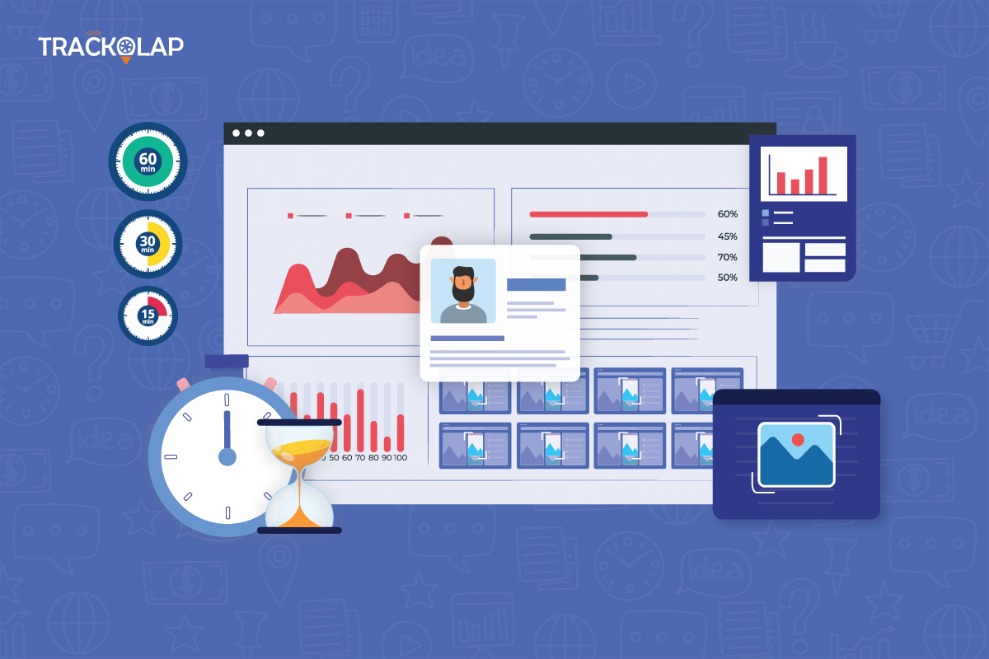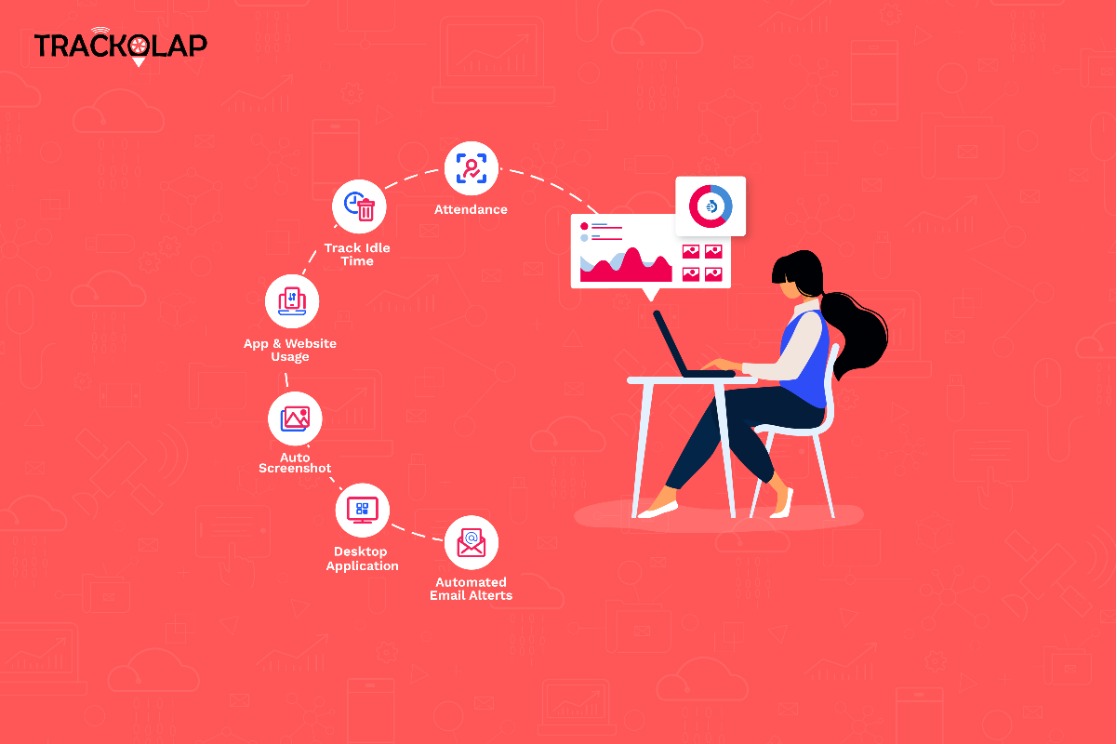
7 Post Lockdown Challenges for Retailers and Small Shopkeepers With Impeccable Solutions
Today, many governments have given permission to shopping malls and other retail stores to open their shutters on the condition of social distancing. One of the most crucial post lockdown challenges is maintaining 2 meters distance between the shoppers. To adopt the new guidelines and ensure that your customers are following the same – is highly challenging for shopkeepers.
At TrackOlap, we have a keen grasp of the retail sector. Our team has understood the needs of retailers and small shopkeepers from the very beginning; thus, we have a fair idea about the retail post lockdown challenges. So, let’s understand how shopkeepers are coping with unlock and what challenges they are facing.
Problems for Retail Sector – How Shopkeepers Are Coping Under Unlock
The business industry has been dramatically impacted by the sudden breakdown of the virus and prolonged lockdown. However, the manufacturing industry has started its production after a few days into the lockdown, but things for the retail industry has been hard. Even after six months, many retail stores aren’t opened, and stores that are opened - have to deal with the multiple post lockdown challenges.
Some of the common problems for the retail sector and how shopkeepers are coping with unlock are as –
#1. Change in Business Continuity Plan
The new normal for shopkeepers have bought numerous new changes for them too. Today, it is very important for retailers to revisit their business continuity plans to reassure customers and colleagues. To manage the broken supply chain and demand trends, it is critical for retailers to create a new business continuity plan.
It is essential for retailers to understand the present market situation and prepare a business continuity plan accordingly. Furthermore, the retail industry has been closed for a few months now; thus, they have to prepare a plan to revive their losses as well.
For example, in some areas, shops are allowed to open on consecutive days so that social distancing can be maintained. Additionally, local and central governments have constantly been changing the guidelines as per the prevailing virus threat. So, shopkeepers have to create a plan to work properly under the changing conditions. In this situation, digital flexibility what businesses need to create a new business continuity plan.
#2. Regulating the Capacity
The shopping malls and cinema halls are opened in one condition – a 50% reduction in capacity. It is very important for retailers to decrease their stores' capacity; otherwise, the government can take strict legal action against them, which can’t be afforded by anyone in the current situation.
Thus, the problem of controlling the capacity of the establishment is complicated for shopkeepers. Especially when you are using manual methods to maintain social distancing but, this complicated problem can be easily addressed with the help of technology. With the help of tracking technology, you can easily regulate the capacity of your establishment and even make sure that no infected person steps foot inside.
For example, the Indian government has developed the Arogya Setu app to track and monitor COVID-19 patients in the country. Similarly, you can provide a tracking app to your customers and employees so that you can keep a record of their health data for future references. Technology is highly vivid and can be used in multiple different ways.
#3. Providing Training to Employees
Retail store employees are getting back to work after so many days now. And, one bigger shock has been waiting up for them – the work scenario has been completely changed. Besides the new regulations, employees have to maintain numerous health and safety measures to keep themselves safe.
And, it is a challenge for retail professionals to provide intensive training to their employees so that they can follow the regulations to the dot. Furthermore, the government regulations are changing after a few days, and it is getting difficult for shopkeepers to keep their employees updated.
Employee efficiency and monitoring tools can be very helpful in providing training and keeping employees updated. For instance, if the government has made any changes in the retail guidelines, you can instantly broadcast a message through the tool and notify your staff. Additionally, you can share training content with employees through the app, such as links, videos, images, etc. It is a simple solution to train and update your team.
#4. Establishing a Connect With Customers
Since you haven’t personally connected with your customers for so long, it is becoming difficult to understand the needs and requirements of your customers. For a retail business, the knowledge of their customers' preferences is the biggest marketing weapon, so when you are losing your weapon – how will you survive?
Simple, you have to establish a connection with your customers even though you aren’t working yet. Still, you need to develop a relationship with your customers. Nowadays, different business organizations are opting for unique methods to stay connected with their customers and to keep them engaged.
If you have developed a dedicated dashboard for your employees, you can encourage them to personally call your regular customers. Through the software, calls can be recorded and analyzed better to understand the present needs of customers. You can ask general questions to your customers, such as how they are dealing? What struggles are they facing? What changes do they want? Etc.
Once you get the customers' insightful data, you can make effective marketing and sales strategies. Additionally, if your customers want a certain change from your side, you can make plans for that also.
#5. Changing the Business Operations
Data is money in the words of Reliance owner Mukesh Ambani’s. Today, if you are able to get authentic data from your customers, you can make better plans for the future. Many customers are nowadays reluctant to visit stores as they are worried about getting infections. Thus, if your customers aren’t interested in getting out of their homes for shopping, you can make changes in your business operations and start selling online.
However, the process of getting online isn’t very simple – from picking the right portal to a suitable fleet management system, you have to make multiple decisions. Thus, you have to retrieve real-time data from your employees before making such a significant change. If you are using the centralized dashboard in your organization, you can effortlessly create a plan for the change.
#6. Maintaining the Supply Chain
The process of unlocking might have been going throughout the nation, but coronavirus is still around us, and you never know when it will infect you. And, once a person or an area gets more COVID-19, the government has full right to convert it into a containment zone. That’s why the problem of maintaining the supply chain is another challenge for shopkeepers.
If your supplier or his team gets sick, your supply chain can get sick too. So, it is a post lockdown challenge to maintain adequate stock and logistics. With the help of dedicated tools, you can make a centralized inventory list that can be accessed by you and your manager with one click. Whenever you find that stock is diminishing, you can place an order for the products. Additionally, using the fleet management system, you can ensure that your order reaches on time.
#7. Supply According to Demand
There’s no doubt that the retail industry is going to experience the worst slowdown of all the time. Now, you have two options – either you can cry over it, or you can adopt a smart attitude and find a solution. If you have kept your sales team on the call and asked them to prepare a customer preference analytical report, you can start supplying the products that customers demand.
For instance, the business of masks, sanitizers, and other safety gear is in demand right now, so you can invest in it. Otherwise, the festival season is soon approaching, and it is the golden opportunity for retailers to earn and grow. Thus, if you use technology to understand market demand, you might save your shop.
Conclusion
Shopkeepers and retailers have numerous challenges to conquer – undoubtedly. But, if they are using smart technology to run their business in the post lockdown, they can definitely beat the heat of slowdown. With the right technologies and tools, you can meet all the social distancing guidelines and grow your business. Just the right tool can make a big difference.
TrackOlap is the leading B2B technology hub, so you can contact us anytime and pull your retail business out of the misery today!






























 Back to Blogs
Back to Blogs










 D-5 Sector-59, Noida, Uttar Pradesh (India)
D-5 Sector-59, Noida, Uttar Pradesh (India) contactus@trackolap.com
contactus@trackolap.com 7011494501
7011494501










